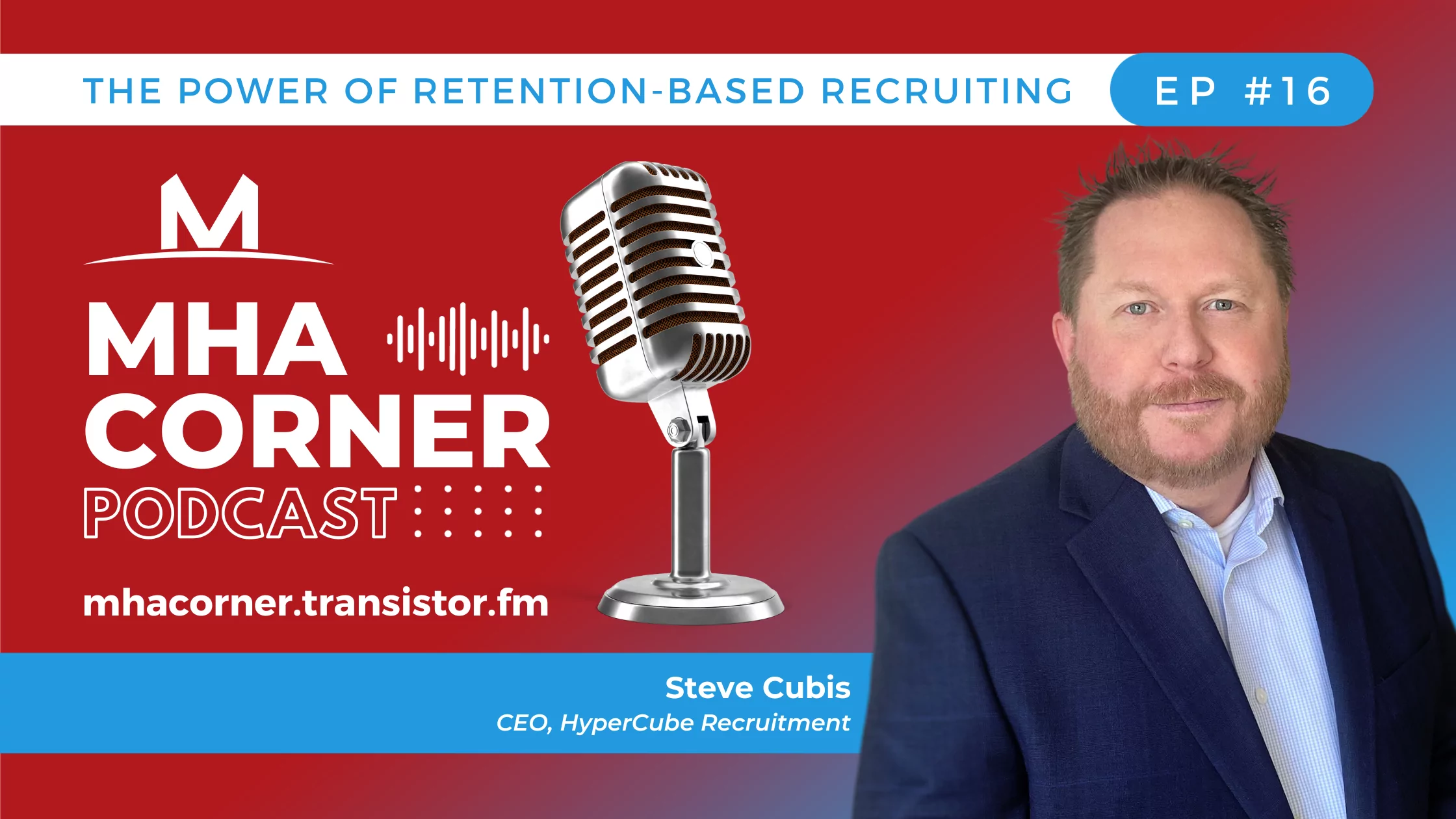Author: Maxwell Healthcare Associates
Posted: November 2, 2023
The employment shortage continues to cause issues throughout all levels of the post-acute industry. Increased burnout, regulation, and dissatisfaction brings immense threat to agency operations as high turnover remains constant. To discuss these issues, we sat down with Steve Cubis, CEO of HyperCube, for a conversation about the current state of recruitment. Cubis discussed the importance of a retention-focused approach, using psychometrics to influence hiring decisions, and the essential role proficiency training plays in employee satisfaction.
Intro:
Welcome to the MHA Corner Podcast, where we talk about news and developments in the post-acute space. Today we hear from Steve Cubis, CEO of HyperCube. He'll talk about retention-based recruiting and the ever-pressing problem of staffing within the industry.
What is the main issue in the post-acute industry that the HyperCube solution can either remedy or completely solve?
The main thing is retention, really focus on hiring outcomes to develop our strategies for hiring. So, from that perspective when we think about retention its really the most important element. When companies do have turnover it creates massive negative impacts on operations, so if we can start to increase retention that's going to be possibly one of the most impactful things post-acute care companies can do to improve their success.
From our perspective what we're doing is breaking down every piece of the hiring process with retention in mind, and optimizing the messaging, our evaluation, and our candidates traction with that retention piece being in the forefront. This overhauls how agencies evaluate and ultimately select the right candidates, HyperCube advises and consults throughout that process on a one-on-one basis to make sure that that we're successfully hitting those hiring goals.
Speaking hypothetically, lets imagine a perfect world where the industry has fully adopted retention-based recruitment. What would characterize this adoption and what would this world look like?
I think the biggest shift would be going from hoping we're hiring the right people to knowing we're hiring the right people. So as opposed to starting to think of valuating, and this is what happens a lot of times, when a new hire is hired, they stop being evaluated from that point on, and it tends to be kind of a retroactive occurrence rather than a proactive piece. So what I would see happen is that the hiring process would start to slow down a little bit from the perspective of “we're not just going to hire a body, we're going to hire the person that's going to be ultimately successful on this role who will be able to perform and behave in the way that fits within our organization”.
To summarize, I think it would stop or reduce the job hopping that you see today with clinicians moving from one agency to another. It's not vastly different, one of the major differences is again that environmental behavioral fit, instead of a candidate and a client kind of coming into this engagement somewhat blind they're going to have a better sense of success.
Compared to other professional recruiting solutions. How does HyperCube differentiate itself from the competition?
It’s a night and day difference - most agencies see recruitment support as being transactional whereas we see it as project-based and consultative. Anytime that we engage with a client we start to understand not just their mission, values, and culture but really the psychometrics for the people that they hire, the leaders, and employees that are going to thrive within the environment of that organization.
From that perspective again, if you were to look at other agencies, they tend to be more “we'll do an intake, we'll find out what the job is, we'll take your job description, we'll find someone who meets those descriptors of qualifications, and then we're going to plant this person on your desk and advocate that they're going to be the right person for you. HyperCube on the other hand, we have incentivized retention, that's our focus, and that's why we provide a market-leading full risk reversal policy. We essentially allow our clients to feel comfortable that that person is going to be successful in their role for at least a year, if not, we would work with them to reengage the entire campaign again to find the right person in the rare cases that we're not successful in the 1st place. All of the things that we have done have increased our retention rates way above our competitors, it's our very methodical, analytical, data driven approach that makes us vastly different from anything else that’s out there.
What do you believe is the main cutting edge that our partnership can deliver to clients?
Our partnership can deliver to client’s comprehensive synergy between recruitment and training, this is where I see the crossroads of success between MHA and HyperCube. Our ability to attract and evaluate candidates that will be successful in that particular role, which may even be a step up for that particular candidate, we can then take the expertise of MHA to train them to proficiency. This retention-focused hire can make that step up, great example of that is looking at the clinical manager role, it is difficult to fill in post-acute care because a lot of nurses are not necessarily getting the training or development to go from being bedside clinician to being a manager. There's hesitation there, so we we’re able to identify the right people that can move into that role, then MHA comes in to give them the skills and aptitude to be successful in that role. Our partnership enables agencies to open that candidate pool up to people that haven't necessarily done that job specifically before, we can select the best fit, and we can train them to proficiency before they even in the door.
Outro:
Thanks for listening to the MHA Corner Podcast. If you'd like to learn more about HyperCube or our optimization services, contact us at [email protected].

